Since winning the presidency with a decisive mandate in 2019, Nayib Bukele – the charismatic millennial millionaire president of El Salvador – has launched a major authoritarian crackdown: using the armed forces to intimidate parliamentarians; enforcing a militarized state of exception during the pandemic; attacking independent journalists; prosecuting the political opposition; and orchestrating a legislative coup to replace Supreme Court magistrates and the Attorney General. Backed by a sizeable portion of the population, Bukele is turning a weak neoliberal democracy into a militarized autocratic state. He has reversed the fragile gains of the 1992 Peace Accords, destroying the country’s post-civil war political system in the process. His rise to power, however, can only be understood in the context of that system’s extended crisis.
The bloody Salvadoran civil war pitted a US-backed military dictatorship against the Farabundo Martí National Liberation Front (FMLN), a leftist guerilla army made up of five political-military organizations and supported by peasant, labour and student movements. After twelve years of sustained insurgent warfare and scorched-earth repression yielded no clear military victor, UN-sponsored negotiations brought the conflict to a close. The Truth Commission report estimated the war’s toll at 75,000 deaths and 10,000 disappearances, with only 5% of the violence attributed to the FMLN.
The Peace Accords demilitarized the Salvadoran state and established a tenuous liberal institutional framework, but they left its highly unequal, export-driven, US-dependent economy in the grip of the oligarchic class: an incestuous clique of old landowning families with large commercial and financial investments in the region. As the FMLN underwent a complex transition from clandestine guerilla army to political party, the Salvadoran elite followed US directives to implement far-reaching neoliberal reforms. Over the course of four consecutive terms (1989–2009), the right-wing Nationalist Republican Alliance (ARENA) party – founded by the death-squad leader who ordered the assassination of archbishop Óscar Romero in 1980 – enacted sweeping privatizations, deregulation and trade liberalization. This restructuring shifted the axes of accumulation from monoculture exports to maquiladora manufacturing and, increasingly, migrant remittances. Tens of thousands of workers, displaced from the public and agricultural sectors, were pushed into the informal economy or the racialized substrata of US labour markets.
In the late 1990s, the mass deportation of Salvadorans from the US returned thousands of migrants to the working-class neighborhoods around San Salvador, some of whom brought with them the gang culture that flourished in US prisons. This soon took root among large numbers of young people excluded from the country’s postwar neoliberal development. Aided by Washington, ARENA deployed iron-fist policing and mass incarceration against the gangs, prompting their maturation into sophisticated criminal enterprises. Amid rising economic hardship, the FMLN, which had been steadily consolidating local electoral power for over a decade, launched an effective presidential campaign led by progressive journalist Mauricio Funes. In June 2009, he ascended to El Salvador’s highest office with 51% of the vote.
The FMLN’s victory, clinched in the first round, was a repudiation of the order that had failed to deliver on the promises of the 1992 agreement. Yet the FMLN came up against significant obstacles while in power. It was constrained by both exogenous and endogenous forces. The military coup d’état against President Manuel Zelaya in neighboring Honduras – backed by the Obama administration – sent a stark warning to the Funes government during its first weeks in office. The US frequently exercised an imperial veto over the FMLN’s social reforms, threatening to sever aid or withdraw temporary immigration protections for the Salvadoran diaspora. The legislature, courts and corporate media worked to destabilize the government, overturning progressive fiscal measures and obstructing development programmes. The Supreme Court even suspended the urban transit system, declaring bus lanes unconstitutional. Further problems were created by an opportunistic pact with the conservative GANA party, founded in 2010 by ARENA defectors. GANA agreed to lend its votes to FMLN, overriding ARENA’s opposition to some legislative changes. But in return it demanded cabinet posts and concessions to capital.
Despite these barriers, the FMLN enacted important social policies over its two five-year terms: building an expansive, Cuban-modeled healthcare system; providing free uniforms, supplies and meals to public school students; paying reparations to victims of war atrocities; and institutionalizing protections for women, indigenous communities and the LGBT population. But the pace of change slowed during the party’s second term under Sánchez Cerén (2014–19), as the impact of the financial crisis reached Latin America. The waning of the Pink Tide and collapse of Venezuelan oil prices left the FMLN increasingly isolated internationally, while the domestic opposition starved the government of funding from its bastions in the legislature and Supreme Court.
Ten years in government took its toll on the FMLN, which became increasingly consumed by the everyday maintenance of state power. After punishing losses in the 2018 midterms, it entered the 2019 presidential race with a defensive strategy and a demoralized base. The revolutionary rhetoric of its first term was replaced by a conciliatory appeal to preserve the gains of the past decade. At the same time, the party’s credibility took a devastating hit, as a series of politically motivated (though not necessarily baseless) charges were levelled against Funes over the misuse of public funds. Enter Bukele in the role of changemaker.
Nayib Bukele is one of many sons of the late Armando Bukele, a wealthy businessman and intellectual of Palestinian descent. A leading figure in El Salvador’s Muslim community, Bukele Sr was also a longtime supporter and financier of the FMLN. After dropping out of college, Nayib had a short-lived career as an entrepreneur, running a nightclub into the ground and working at a family advertising agency. In 2012, Bukele Sr used his connections to launch his son’s political career. Nayib joined the FMLN at the age of 31 and ran for the mayoralty of a small suburb of Nuevo Cuscatlán, where he built up his personal brand – including his signature color, cyan, a notable departure from the FMLN’s traditional red and white. In 2015 he was elected mayor of San Salvador, with his sights set on the presidency.
Bukele’s youth and PR skills brought him broad popularity both within and without a party still led by an aging comandancia. But his ambition and indiscipline provoked increasing conflict with the leadership. In 2017 he was finally expelled from the FMLN after making a sexist remark to an FMLN city councilwoman. With the 2019 presidential elections fast approaching, it was too late for Bukele to register as an independent, and he failed to launch his ‘New Ideas’ party in time to compete. He opted to join the GANA ticket, recruiting FMLN defector Felix Ulloa as his vice-presidential candidate. Presenting himself as a rebellious and irreverent outsider, Bukele hijacked the establishment’s wrecking campaign against the left, attacking both the FMLN and ARENA as enemies of the people. His base was comprised of working- and middle-class Salvadorans, including a large number of fundamentalist evangelical Christians and frustrated former FMLN voters. Factions of Salvadoran capital outside the traditional oligarchy have swung behind him, along with the shadowy military and narcotrafficking interests represented in the GANA bloc. It proved to be an unbeatable coalition. Bukele won easily, with 53% of the vote.
In government, he has surrounded himself with a tight circle of family and friends. His brothers Karim, Yusef and Ibrajim work as unofficial advisors and spokespeople, while his cousin Javier Zablah Bukele presides over the New Ideas party. Two longstanding acquaintances of Bukele, Ernesto Castro and Conan Castro, serve respectively as his private secretary and president of the Legislative Assembly. At least three cabinet members are the president’s former schoolmates. Despite his anti-corruption rhetoric, Bukele’s primary project has been to consolidate this patrimonial power. In lieu of a development strategy, he has dedicated unprecedented resources to publicity, while reversing the FMLN’s modest reforms. Making expert use of social media, he deploys evangelical Christian tropes to present himself as a messianic figure crusading against the demonic forces of the political establishment, gang violence, and a cabal of NGOs, journalists and foreign interests.
Following the legislative coup on 1 May, in which lawmakers voted to replace the Attorney General and all five magistrates of El Salvador’s constitutional Chamber, the president has used the newly subordinate judicial branch to harrass the opposition, targeting the left in particular. On 22 July, police arrested five former FMLN cabinet members on trumped-up corruption charges and issued warrants for several others, including former president Sánchez Cerén. In addition, Bukele has re-politicized the armed forces and expanded their role in public life, pledging to double their ranks. He has directed the vice president to embark on a secretive process to reform the Constitution in the hope that this will ease his path to reelection.
Bukele’s party swept the February 2021 midterms, winning a legislative supermajority plus the better part of mayorships nationwide. Polls continue to reflect his personal popularity, but after two years of false promises and a deepening economic crisis, that support has begun to falter. Desperate for financing, Bukele has raised the national debt to over 90% of GDP, while courting foreign tourism and tech-bro investors. Yet his autocratic and unpredictable governance style may jeopardize those efforts by imperiling international loans and tanking the country’s credit ratings. Meanwhile, El Salvador’s relationship with the US has reached a historic low. The Biden administration, under pressure to combat the ‘root causes’ of mass Central American migration, views Bukele as a difficult and unreliable subordinate. Caught between a performative commitment to democratic norms and the need for security cooperation to contain migration flows, the US has resorted to aid restrictions and sanctions to discipline El Salvador’s premier. If tensions with the hegemon continue to escalate, the impact on the country’s US-dependent economy will be significant.
Last June, in a bid to boost foreign investment, circumvent possible sanctions and stimulate illicit economies, Bukele made the controversial decision to impose Bitcoin as legal tender. Yet this cryptogamble is unlikely to pay off. The reform, undertaken with no public consultation and pushed through parliament at rapid speed, is deeply unpopular, eliciting comparisons with ARENA’s disastrous dollarization of the economy in 2001. The Salvadorian left, however, is in no position to capitalize on the discontent. The 2021 midterms reduced the FMLN to near irrelevance, with only four legislative seats and a handful of tiny mayorships. Under the weak leadership of former vice president Óscar Ortiz, a faction associated with the old Communist Party has effectively taken over the organization. This group, which controls the national subsidiary of the Venezuelan oil company PDVSA, now dominates the FMLN’s principal decision-making bodies. It has pushed for increased collaboration with the government, convincing two of the party’s four legislators to vote with New Ideas in an attempt to claw back influence.
The FMLN’s demise is not predestined. A scenario in which the party returns to its popular roots remains possible, as indicated by the Communist Party’s recent revival in Chile. The remnants of the labour movement have largely been coopted, although feminist, LGBT, student and environmental organizations continue to mobilize against the government. Thousands turned out last May to protest against the lack of provisions for workers and the unemployed during the pandemic. Yet without a progressive electoral force capable of commanding broad support, the right will be best placed to profit from Bukele’s decline. Certain factions of big capital – like the Kriete family, with massive regional aviation, real-estate and agribusiness holdings – have aligned themselves with the ruling bloc, but many others still view Bukele with unease. The 2020 midterms saw a multiplication of small right-wing parties, as Salvadoran big business casts about for viable alternatives. Without a left revival, these forces could eventually anoint Bukele’s successor: someone less erratic, less likely to alienate the US, but no more capable of remedying El Salvador’s structural ailments.
*Originally published on https://newleftreview.org/sidecar/posts/126



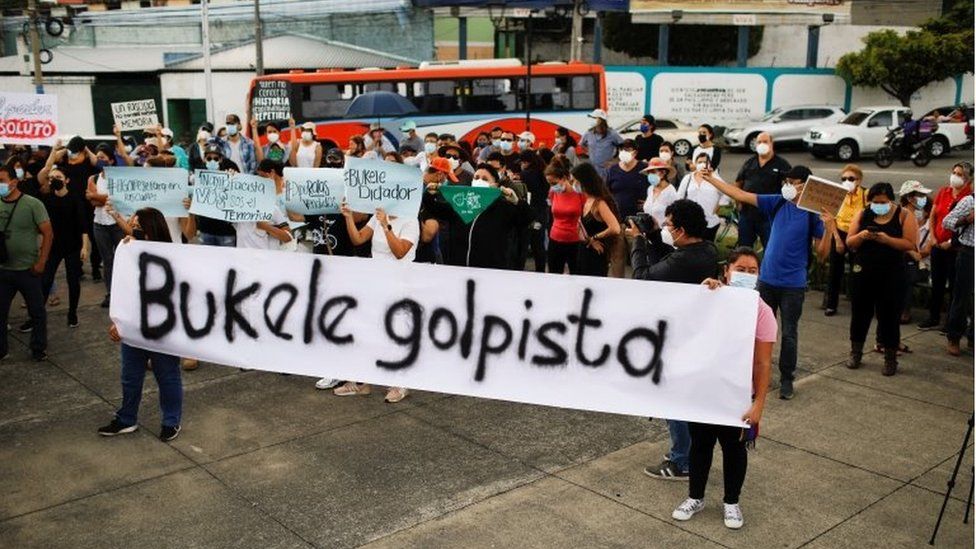
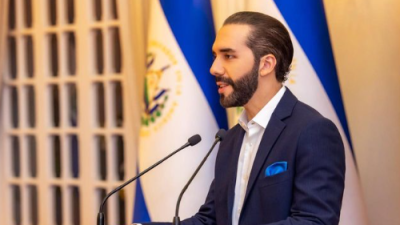
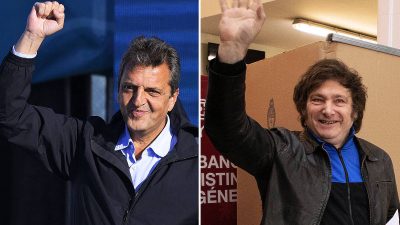
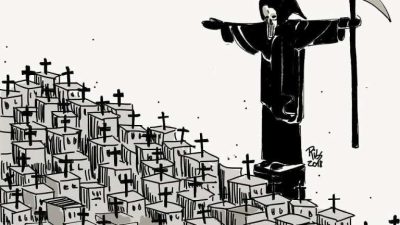
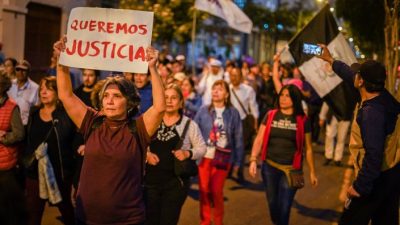
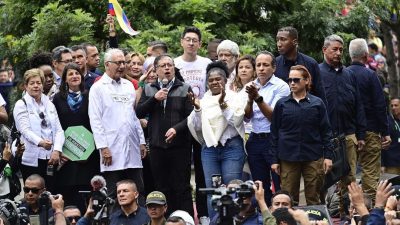
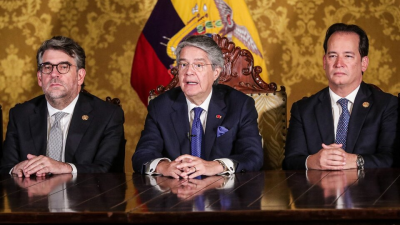
Comentários